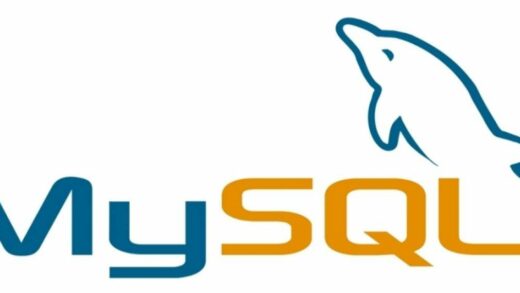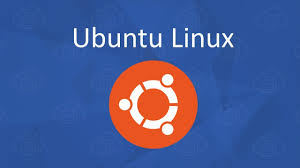This is not going to be a tutorial on how to install some particular program under Ubuntu. It will be basically an apt install list of programs that I install on every Linux machine because they are either fun or useful, which I believe are the only requirements to install any program lol. I wrote a similar article about a year or so ago but as I just recently installed Ubuntu Linux 20.04 on my 2011 MacBook Pro I thought I might write another as I am in the process of tricking this newly invigorated laptop out and adding software for both work and play. I do almost everything on that laptop now. Even took it to the place where I have breakfast a couple times a week and
fortune
fortunes is a program I install on all Linux machines I install. It hearkens back to the original days of Unix, meaing this is a program that believe it or not is probably 40+ years old, at least in it’s original programming and installment all those glorious years. All fortune does is spit out a ‘fortune cookie’ or some famous ‘quote’ every time you start a Unix/Linux terminal session.
“Never underestimate the power of a small tactical nuclear weapon.” – a random fortune it just spit out
- apt install fortune fortunes
nmap
nmap is network port scanning tool that is probably the single most beneficial and evil tool installed by Unix/Linux system administrators and network engineers the world over. Beneficial in the fact that it is one of the best and cheapest (free) network tools out there and evil because it’s probably the first tool every single bad actor (evil hackers) uses when attempting to exploit some site on the internet. nmap also features a graphical front end called Zenmap which I have used maybe once or twice. I rearely if ever install Zenmap, I only mention it just in case others might find it useful.
- apt install nmap
screen and/or tmux
screen and tmux are terminal multiplexers. Multiplexer use to be a word that was used all the time in the technical circles but I think the word ‘virtual’ has taken over and unless you’re into low level telecommunications equipment, probably not a word you will use often, maybe except for when talking about tmux (terminal multiplexer). Both of these programs allow you to run multiple shell sessions in a single shell session and switch between them via a key sequence. Multitasking, or multiplexing, or virtual windows for your terminal sessions. I personally am a fan of tmux because of the status line. I wrote an article which is available on my primary web site https://azure.zettabytes.org and you may see it by clicking here.
- apt install screen
- apt install tmux
net-tools
Mostly because I want the ‘ifconfig‘ command, but also because of the other tools I use when troubleshooting network connections. The following is the dpkg -s output:
Description: NET-3 networking toolkit
This package includes the important tools for controlling the network
subsystem of the Linux kernel. This includes arp, ifconfig, netstat,
rarp, nameif and route. Additionally, this package contains utilities
relating to particular network hardware types (plipconfig, slattach,
mii-tool) and advanced aspects of IP configuration (iptunnel, ipmaddr).
.
In the upstream package ‘hostname’ and friends are included. Those are
not installed by this package, since there is a special “hostname*.deb”.
Homepage: http://sourceforge.net/projects/net-tools/
Original-Maintainer: net-tools Team
- apt install net-tools
locate
I’m not sure why this removed from later version of Ubuntu. My guess is there’s a better utility or facilities already built in to do the the same functionality. In fact there are tons of default utilities which scour the system specific files, it’s just that I’m real use to locate, so I install it. What locate does is create a database of every single file on your filesystem/s. Then when you’ve forgotten the location of files you can just locate it. It works against a database, or more correctly, a file list, however it is blazing fast and just useful when I need it. The first time you install it you run the updatedb command which creates that database/file list , and that’s it. It ‘s a good idea to ruin the updatedb command weekly or monthly or whatever, a prime candidate for a cron job.
- apt install locate
cowsay and lolcat
These funny soundings utilities, or programs are in the fun classification. They won’t help you with administration, they’re not some awesome tool which you can show off to your friends you know how to use, and they will not key features in your plans for taking over the world. No, they are nothing like that. They’re more like ANSI dragons and cats with rainbows flying out of their butts. I digress, I wrote an article on these last year I think and I’ll refer you to that for the rest. You can find that article by clicking here.
- apt install lolcat cowsay
lynx
lynx is nothing else but a terminal based web browser. As such you’re obviously not going to see pictures or watch video’s or even click links. Well, you’ll be able to click links but it will be more of tabbing or cursor keying you’re way sequentially through the available clickable links till you find the one you want. And it will still be all ASCII text. It comes in handy occasionally. As it’s ANSI based, or feature rich terminal based actually, you can download pictures and files and what not but I mostly use this for a troubleshooting tool.
- apt install lynx
ircii
This is an ancient IRC (internet relay chat) client. It’s a basic text mode client but it works well in a text terminal. In the old days IRC was the only real time chat system available.
- apt install ircii
Please visit my Patreon page if you’re so inclined or make a donation. Or you can click the coffee cup in the bottom right corner of the screen and Buy Me A Coffee. Thank you!


